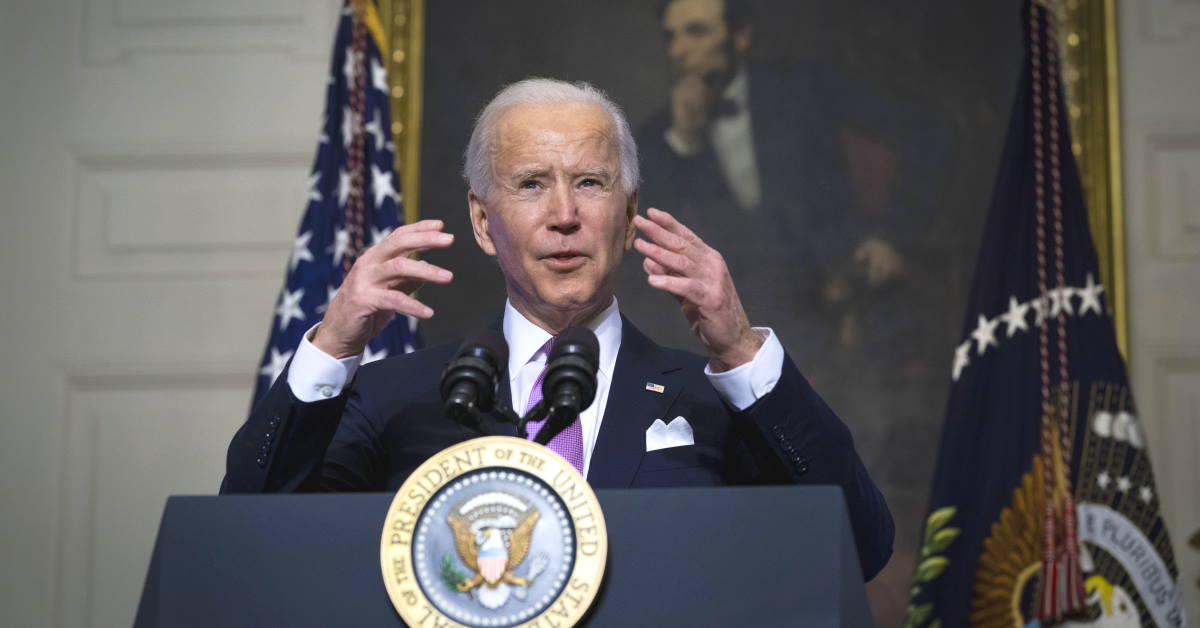In his inaugural address, United States (US) President Joe Biden declared that Americans “will be judged” for how they “resolve the cascading crises of our era.” He expressed confidence that the country would “rise to the occasion,” and pledged that the US would lead “not merely by the example of our power but by the power of our example.”
The contrast with President Donald Trump’s divisive, isolationist rhetoric could not be sharper. But adopting a different tone is easier than reversing America’s relative decline. To do that, Biden will need to provide wise, forward-looking leadership. And that does not necessarily mean breaking with everything that Trump did.
America’s debilitating political polarisation has undermined its international standing. Partisan considerations have hampered – even precluded – the pursuit of long-term foreign-policy objectives. US policy toward a declining Russia, for example, has become hostage to US domestic politics.
Biden’s calls for unity reflect his awareness of this. But the truth is that healing the deep rupture in US society may be beyond any president’s ability, not least because so many Republican voters seem to have abandoned all faith in evidence and expertise. So, rather than becoming consumed by domestic political divisions, Biden must rise above them.
And yet, there is one area where there is broad bipartisan consensus: the need to stand up to China. Trump understood this. Indeed, his tough China policy is his most consequential – and constructive – foreign-policy legacy. Unless Biden pursues a similar approach, the erosion of US global leadership will become inexorable.
The Indo-Pacific region – a global economic hub and geopolitical hotspot – is central to an effective China strategy. Recognising the region’s immense importance to the world order, China has been steadily reshaping it to serve Chinese interests, using heavy-handed economic coercion, political repression, and aggressive expansionism to have its way from the Himalayas and Hong Kong to the South and East China Seas.
The only way to preserve a stable regional balance of power is with a rules-based, democracy-led order – or, as the Trump administration put it, a “free and open Indo-Pacific.” Over the last year, this vision has spurred the region’s democracies to deepen their strategic bonds and inspired even the faraway democracies of Europe to implement supportive policies.
Under the Biden administration’s leadership, countries must now build on this progress, creating a true concert of democracies capable of providing stability and balance in the Indo-Pacific.
Biden seems to understand this. He has made clear his intention to build a united democratic front to counter China. But he is also at risk of undermining his own vision.
For starters, Biden did not embrace the term “Indo-Pacific” until after his electoral victory, and when he did, he replaced “free and open” with “secure and prosperous.” But, whereas “free and open” automatically implies a rules-based, democracy-led order, “secure and prosperous” leaves room for the inclusion of – and even leadership by – autocratic regimes. This ignores the crux of the Indo-Pacific challenge: a revisionist China is actively seeking to supplant the US as the region’s dominant power.
Making matters worse, Biden has signalled a possible reset of ties with China. This would play right into China’s hands.
Trump’s China policy was not just about trade or human rights. It sent the (right) message that China is a predatory communist state without political legitimacy or the rule of law. This helped to tip the scales in America’s favour. Over the last year, unfavourable perceptions of China reached historic highs in many countries.
While this was largely because of the made-in-China COVID-19 pandemic, Trump’s ideological onslaught and China’s own aggression – such as on its Himalayan border with India – also played a role.
If the Biden administration abandons economic decoupling and treats China as a major competitor, rather than an implacable adversary, it will tip the scales in the opposite direction, relieving pressure on Chinese President Xi Jinping’s regime and undermining faith in US leadership. This could embolden China to destabilise the Indo-Pacific further, with Taiwan possibly its next direct target.
Moreover, US conciliation would give India second thoughts about aligning itself too closely with the US, and would likely lead to Japan’s militarisation – a potential game changer in the Indo-Pacific. It would also facilitate China’s efforts to leverage its vast market to draw in America’s democratic allies – a risk underscored by its recent investment deal with the European Union (EU).
All of this would undermine efforts to forge the united democratic front Biden envisions, compounding the threat of China’s aggressive authoritarianism. The worst choice Biden can make is to seek shared leadership with China in the Indo-Pacific, as some are advocating.
Worryingly, Biden’s team does not seem clear on this. In a 2019 essay, Jake Sullivan (Biden’s national security adviser) and Kurt Campbell (Biden’s “Indo-Pacific czar” at the National Security Council) championed “coexistence with China,” describing the country as “an essential US partner.”
To be sure, Sullivan and Campbell did not call for Sino-American joint hegemony, in the Indo-Pacific or beyond. But they also did not take the clear and necessary position that the US must forge a concert of democracies to bring sustained multilateral pressure to bear on China.
After four years of Trump, Biden is right to tout the importance of domestic unity. But a tough line on China is one of the few policy areas behind which Americans can unite. More important, it is the only way to ensure a stable Indo-Pacific and world order.
Related Articles:

